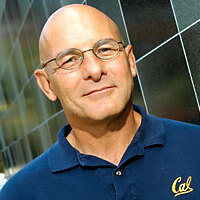Instructional design (ID), also known as instructional systems design and originally known as instructional systems development (ISD), is the practice of systematically designing, developing and delivering instructional materials and experiences, both digital and physical, in a consistent and reliable fashion toward an efficient, effective, appealing, engaging and inspiring acquisition of knowledge. The process consists broadly of determining the state and needs of the learner, defining the end goal of instruction, and creating some "intervention" to assist in the transition. The outcome of this instruction may be directly observable and scientifically measured or completely hidden and assumed. There are many instructional design models but many are based on the ADDIE model with the five phases: analysis, design, development, implementation, and evaluation.
The Association of College and Research Libraries defines information literacy as a "set of integrated abilities encompassing the reflective discovery of information, the understanding of how information is produced and valued and the use of information in creating new knowledge and participating ethically in communities of learning". In the United Kingdom, the Chartered Institute of Library and Information Professionals' definition also makes reference to knowing both "when" and "why" information is needed.

David Andrew Patterson is an American computer pioneer and academic who has held the position of professor of computer science at the University of California, Berkeley since 1976. He announced retirement in 2016 after serving nearly forty years, becoming a distinguished software engineer at Google. He currently is vice chair of the board of directors of the RISC-V Foundation, and the Pardee Professor of Computer Science, Emeritus at UC Berkeley.
Michael John Scriven was a British-born Australian polymath and academic philosopher, best known for his contributions to the theory and practice of evaluation.

David A. Wiley is an American academic, writer who is the chief academic officer of Lumen Learning, education fellow at Creative Commons, and former adjunct faculty of instructional psychology and technology at Brigham Young University, where he was previously an associate professor. Wiley's work on open content, open educational resources, and informal online learning communities has been reported in many international outlets, including The New York Times, The Hindu, MIT Technology Review, and Wired.
A chief learning officer (CLO) is the highest-ranking corporate officer in charge of learning management. CLOs may be experts in corporate or personal training, with degrees in education, instructional design, business or similar fields.

Higher education in Nova Scotia refers to education provided by higher education institutions. In Canada, education is the responsibility of the provinces and there is no Canadian federal ministry governing education. Nova Scotia has a population of less than one million people, but is home to ten public universities and the Nova Scotia Community College, which offers programs at 13 locations.
Kyu Ho Youm is a professor and the Jonathan Marshall First Amendment Chair at the University of Oregon School of Journalism and Communication.
Harold O'Neil is an American psychologist.

Paul Michael Béla Vitányi is a Dutch computer scientist, Professor of Computer Science at the University of Amsterdam and researcher at the Dutch Centrum Wiskunde & Informatica.

A Virtual Learning Environment (VLE) is a system specifically designed to facilitate the management of educational courses by teachers for their students. It predominantly relies on computer hardware and software, enabling distance learning. In North America, this concept is commonly denoted as a "Learning Management System" (LMS).
Michael Adrian Peters is a New Zealand education academic. He is currently a Professor in the Faculty of Education at Beijing Normal University and Emeritus Professor at the University of Illinois at Urbana–Champaign.
Project SEED is a mathematics education program which worked in urban school districts across the United States. Project SEED is a nonprofit organization that worked in partnership with school districts, universities, foundations, and corporations to teach advanced mathematics to elementary and middle school students as a supplement to their regular math instruction. Project SEED also provides professional development for classroom teachers. Founded in 1963 by William F. Johntz, its primary goal is to use mathematics to increase the educational options of low-achieving, at-risk students.
Simonson is a surname. Notable people with the surname include:

Dr. Vicki L. Gregory is professor emeritus at the School of Information at the University of South Florida (USF). She and was director of the School from 1999 until 2007. Her fields of specialization include: academic libraries, digital librarianship, technical services, information science, library networking, library automation, and collection development. Prior to teaching at USF Dr. Gregory was Director of Systems and Operations for the Auburn University at Montgomery Library. She is currently President of Beta Phi Mu. She was Treasurer for the Association for Information Science and Technology (ASIS&T) and the winner of the 2014 Watson Davis Award. She is also the author, co-author, or editor of seven books and has published numerous articles.

M. David Merrill is an education researcher specializing in instructional design and technology.
Jerrold Kemp was a researcher in the field of Instructional Design. He was the main contributor to the Kemp Instructional Design Model.

Michael J. Hannafin was professor of instructional technology and director of Learning and Performance Support Laboratory at the University of Georgia. He obtained a Ph.D. in educational technology from the Arizona State University. Along with Kyle Peck, he developed the field of computer-aided instruction as distinguished from computer-based instruction. He received the AERA SIG- IT Best Paper Award in 2007.

Jonathan Michael Spector is an American academic working as the professor of learning technologies and the doctoral program coordinator at the University of North Texas. He was previously professor of educational psychology at the University of Georgia and instructional systems at Florida State University.
Laura Mary O'Dwyer is a professor of Measurement, Evaluation, and Statistics at Boston College known for her work on examining the impact of technology in education, especially science education, and for quantifying outcomes for K-12 student success.








